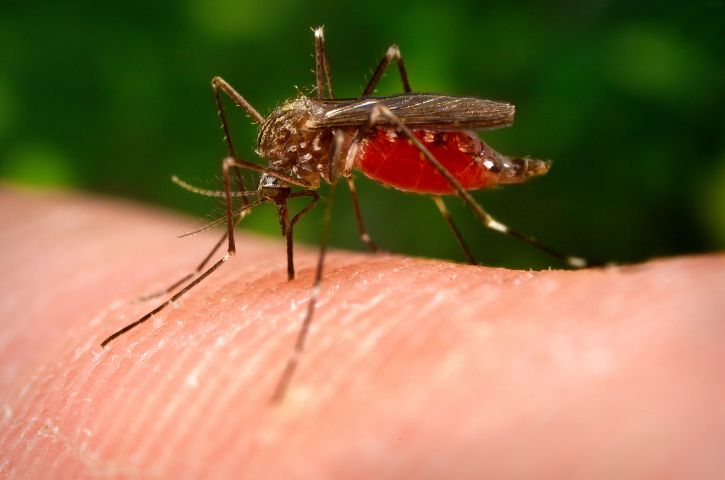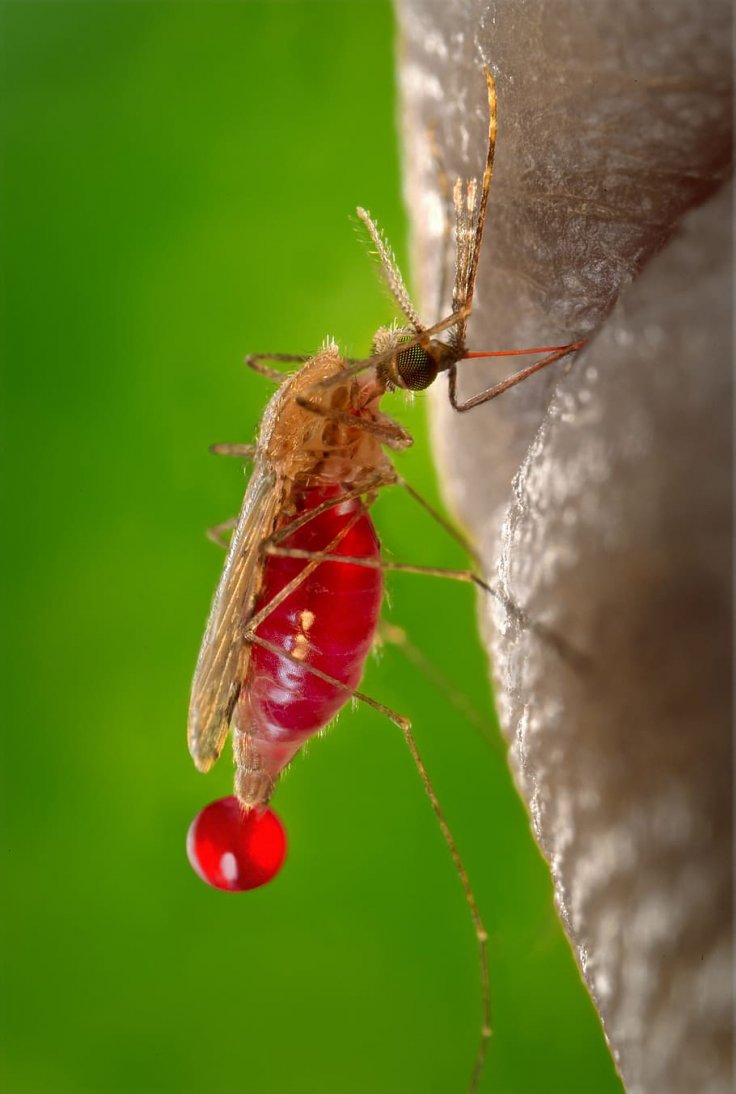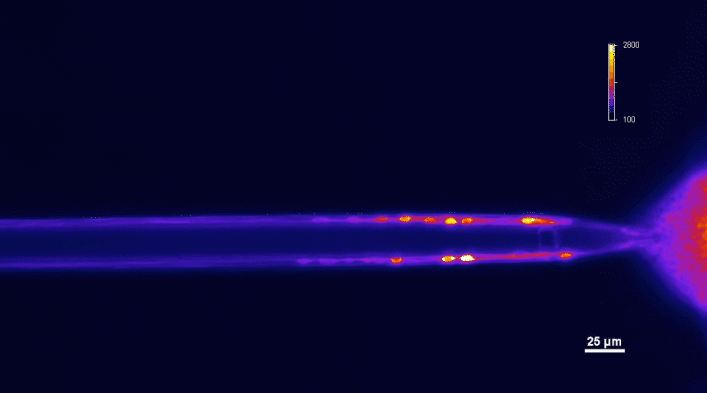While the existence of the mythical vampire has not been proven, there does exist a much smaller creature with a similar bloodlust and a single 'fang'—Mosquito. Known for its love for human blood and transmitting lethal diseases in the process of quenching its thirst, the mosquito is considered one of the deadliest creatures in the world. Now, researchers have found that mosquitoes possess four individual neurons responsible for their taste for human blood.
According to the study by researchers from the Howard Hughes Medical Institute, female mosquitoes have a honed sense of taste that is particularly designed to recognize a combination of around four different substances in the blood.
The scientists modified mosquitoes genetically to identify the activation of specific neurons that were triggered in the insect 'stylet'—the tubular appendage it uses to prick and suck blood—upon tasting blood. "We found that blood is detected by four functionally distinct stylet neuron classes, each tuned to specific blood components associated with diverse taste qualities," the authors wrote.

Seeking Blood
It is common knowledge that only female mosquitoes feed on blood, as it is essential for the development of its eggs. However, not much is known about their sense of taste. Female mosquitoes survive on sweet nectar most of the time and feed on blood only before laying eggs. Therefore, an inherent pathway facilitates the distinction of taste.
The research team, in previous studies, had learned that mosquitoes could detect repellents such as DEET using their legs. They also found that mosquitoes use an odorant receptor that enables them to discern the difference between human beings and other animals.
As their thirst for blood is the source of transmission of potent diseases such as dengue, malaria, yellow fever, and chikungunya, among others, understanding their mechanism of detecting blood may potentially prevent the spread of diseases. "If mosquitoes weren't able to detect the taste of blood, in theory they couldn't transmit disease," said Veronica Jové, co-author of the study, in a statement.

Differentiating Between Blood and Nectar
The authors guessed that female Aedes aegypti mosquitoes—the vector of dengue fever, Zika fever, and chikungunya, among other viruses—could definitely differentiate the two substance through taste, unlike males. Their suspicions were proven when experiments revealed that females mosquitoes indeed possessed two 'modes' of feeding where different parts of its mouth are used to identify different tastes or flavors.
When the mosquito was in 'nectar-feeding mode', it detected sugar. While it was in its 'blood-feeding' mode, the mosquito used the stylet to penetrate the skin and taste blood. The researchers, however, deceived the mosquitoes into turning on its blood-feeding mode by giving them a mixture of four compounds—sodium chloride (salt), sodium bicarbonate (found in the blood as well as baking soda), glucose (a sugar), and adenosine triphosphate, or ATP, a compound that supplies cells with energy.

With their curiosities piqued, the team made a solution of ATP in the lab and tasted it. It was tasteless. "ATP is this special mystery stuff that tastes like nothing to humans. But it's got to be incredibly exciting and rewarding for the mosquito," expressed Leslie Vosshall, lead investigator of the study.
How Does Human Blood Taste?
Much like human taste buds, a mosquito's stylet has specialized neurons to respond to specific flavors to particular flavors. In order to be able to view that these neurons while activated, the team modified mosquitoes genetically with a fluorescent tag that lit up when a neuron was triggered.
Next, they observed the activity of cells within the stylet that were excited in response to different flavors. It was found that only a particular subset was activated by tasting blood (both real blood and the team's artificial mixture)

A scenario like this begs for the asking of an interesting question: What does human blood taste like? Voshall answered that the answer to the question was as complex as explaining a bat picking up of sonar ways or bees viewing flowers. The closest it can come to being explained is that human blood is partly sweet and partly salty. "There is nothing like this in the human experience," she said.
Potential to Develop Ways to Avoid the 'Prick'
The study offers new insights into the adaptation of female mosquitoes to seek and find blood. According to the authors, a deep understanding of their sense of taste can help in developing ways to keep diseases by preventing them from biting human beings.
Drawing on existing precedents in animals like dogs where monthly tick and flea oral medication is given to keep the parasites away, something on its lines could be developed for human beings against mosquitoes, suggested Vosshall. Perhaps, a drug that interferes with the insect's taste for blood could be designed.
The solutions of human being less "tasty", also raises another curious question. Do mosquitoes find some individuals "tastier" than others? "We're all tasty enough for a mosquito. Once they detect blood, we don't have a sense they're very picky," concluded Jové jokingly.









